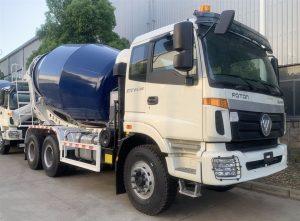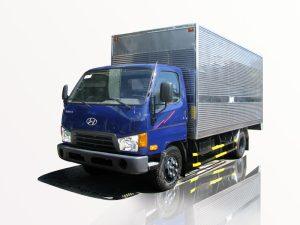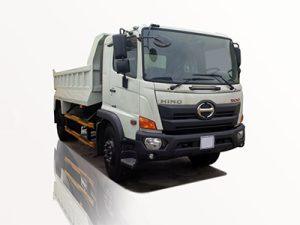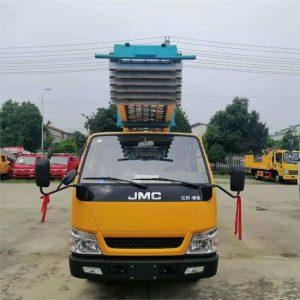Monday to Saturday - 8:00 -17:30
Small Reefer Truck: Everything You Need to Know
Introduction
A small reefer truck, also known as a refrigerated truck, is vital in many industries, particularly in the transportation of perishable goods. These trucks maintain a controlled temperature environment that ensures products such as food, pharmaceuticals, and flowers remain fresh during transit. In this article, we will delve into the specifics of small reefer trucks, their benefits, types, operational considerations, and much more.
What is a Small Reefer Truck?
A small reefer truck is a vehicle equipped with a refrigeration unit and insulation, designed to transport temperature-sensitive commodities. These trucks can vary in size but are generally less than 20 feet in length, making them maneuverable and suitable for urban deliveries.
Types of Small Reefer Trucks
- Standard Reefer Trucks: These trucks offer a fixed refrigeration system ideal for consistent temperature control.
- Multi-Temperature Reefer Trucks: Designed with multiple compartments, these trucks can maintain different temperatures simultaneously, ideal for carrying various products.
- Van Refrigerated Trucks: These are smaller and often used for last-mile delivery within cities.
Benefits of Using Small Reefer Trucks
Small reefer trucks present numerous advantages for businesses that need to transport perishable goods.
1. Temperature Control
These trucks are equipped with advanced cooling technology that ensures the temperature remains consistent, preventing spoilage.
2. Maneuverability
Smaller in size, these trucks can easily navigate congested urban areas and deliver to locations with limited access.
3. Cost-Effective
Small reefer trucks are generally less expensive to purchase and operate, making them an attractive option for small businesses.
4. Versatility
They can carry a variety of goods, from fresh produce to pharmaceuticals, allowing businesses to cater to diverse customers.
Operational Considerations for Small Reefer Trucks
Operating small reefer trucks comes with its own set of challenges. Here are some considerations to keep in mind:
1. Maintenance Requirements
Regular maintenance of the refrigeration unit is crucial for optimal performance. Neglecting this can lead to costly repairs and product loss.
2. Temperature Monitoring
Implementing a system to monitor temperature throughout the journey is vital. Many trucks come with digital monitoring systems, but manual logs are also an option.
3. Loading and Unloading Procedures
Efficient loading and unloading practices help ensure products remain at the required temperature. Staff should be trained to work swiftly and carefully.
Choosing the Right Small Reefer Truck
When selecting a small reefer truck for your business, consider the following factors:
1. Size and Capacity
Evaluate the volume and weight of the goods you plan to transport. Make sure to choose a truck that accommodates your needs without being excessively large.
2. Refrigeration System
Examine the refrigeration system for reliability and effectiveness. Look for models with energy-efficient options to save on operational costs.
3. Manufacturer Reputation
Choose a truck from a reputable manufacturer known for quality and customer support. Research customer reviews and feedback before making a decision.
4. Price and Financing Options
Consider not only the purchase price but also long-term operational costs. Explore financing options available through dealerships and lenders.
Examples of Popular Small Reefer Trucks
| Model | Length | Capacity (lbs) | Key Features |
|---|---|---|---|
| Mercedes-Benz Sprinter | 19 ft | 3,500 | Fuel-efficient, advanced safety features |
| Ford Transit | 16 ft | 4,000 | Customizable interiors, user-friendly tech |
| Isuzu NPR | 20 ft | 6,000 | Durable build, excellent maneuverability |
Practical Tips for Operating Small Reefer Trucks
Here are some practical tips to ensure the efficient operation of your small reefer truck:
1. Regular Temperature Checks
Conduct regular checks to ensure the truck’s refrigeration system is functioning properly. Invest in temperature logging devices for better accuracy.
2. Proper Packing Techniques
Utilize insulated packaging materials to help maintain temperature during transit. Pack goods tightly to minimize shifting and air pockets, which can increase temperature fluctuations.
3. Route Planning
Plan your delivery routes to minimize stops and maximize efficiency. Consistent routes can lead to better time management and less temperature fluctuation.
4. Staff Training
Train your drivers and warehouse staff on the importance of temperature control. They should understand the best practices related to loading, unloading, and monitoring goods.
Common Mistakes to Avoid
To maximize the efficiency of your small reefer truck operations, avoid these common pitfalls:
1. Ignoring Maintenance Schedules
Overlooking regular maintenance can lead to failures and breakdowns, affecting delivery schedules.
2. Inadequate Temperature Monitoring
Failing to monitor temperatures can result in loss of product and increased spoilage costs.
3. Overloading the Truck
Exceeding the truck’s weight limitations can affect performance and lead to violations.
Frequently Asked Questions (FAQs)
1. How does a small reefer truck maintain temperature?
Small reefer trucks use insulated bodies and refrigeration units that maintain a controlled environment to prevent spoilage.
2. What types of goods can be transported in a small reefer truck?
They can transport a variety of temperature-sensitive items, including fruits, vegetables, pharmaceuticals, and dairy products.
3. How often should a small reefer truck be serviced?
It is recommended to service the truck and refrigeration unit every 3 to 6 months to ensure optimal performance.
4. Can I lease a small reefer truck?
Yes, many dealerships and companies offer leasing options which can be beneficial for businesses looking to minimize upfront costs.
5. What is the average lifespan of a small reefer truck?
With proper maintenance, a small reefer truck can last between 10 to 15 years.
6. Are there regulatory standards for transporting perishable goods?
Yes, there are various local and federal regulations that govern the transport of perishable goods; it’s essential to be familiar with these to ensure compliance.









